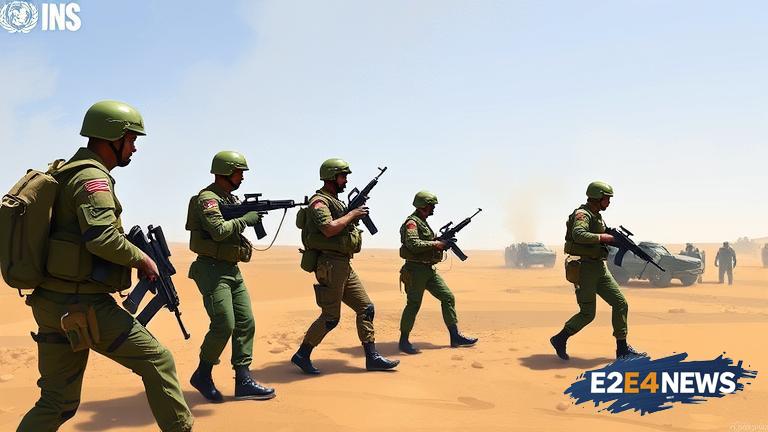The Gaza Strip has been a focal point of conflict in the Middle East for decades, with recurring outbreaks of violence and a dire humanitarian situation. In an effort to address this, the United Nations is exploring a new approach to peacekeeping in the region. A proposed intervention force, operating under a new format, aims to provide a more robust and effective presence on the ground. This would involve a significant increase in troop numbers and a broader mandate to engage with local parties and address the root causes of the conflict. The new format would also prioritize the protection of civilians and the promotion of human rights. By taking a more proactive and comprehensive approach, the UN hopes to create an environment conducive to peace and stability in Gaza. The intervention force would work closely with local authorities and other stakeholders to build trust and foster cooperation. This could involve initiatives such as community outreach programs, economic development projects, and support for civil society organizations. Furthermore, the force would be equipped with advanced technology and training to effectively monitor and respond to security threats. The UN is also seeking to engage with regional and international partners to secure their support and participation in the mission. This could include contributions of troops, equipment, and financial resources. A successful peacekeeping mission in Gaza would have far-reaching implications for the region, potentially paving the way for a broader peace agreement between Israel and the Palestinians. It would also demonstrate the effectiveness of the UN in addressing complex and protracted conflicts. However, the challenges ahead are significant, and the mission would require careful planning, coordination, and execution. The UN would need to navigate complex political and diplomatic dynamics, while also addressing the humanitarian and development needs of the local population. In addition, the force would need to be adaptable and responsive to changing circumstances on the ground. Despite these challenges, the proposed intervention force offers a glimmer of hope for a more peaceful and stable future in Gaza. By working together and adopting a new and innovative approach, the international community can help to bring an end to the suffering and violence that has afflicted the region for so long. The people of Gaza deserve nothing less, and it is the responsibility of the international community to support and empower them in their quest for peace and self-determination. As the UN moves forward with its plans, it is essential that all parties remain committed to the principles of peace, justice, and human rights. Only through a collective and sustained effort can we hope to achieve a lasting and meaningful resolution to the conflict in Gaza. The international community must also recognize the importance of accountability and transparency in the peacekeeping mission, ensuring that all actions are guided by a commitment to human rights and the protection of civilians. Ultimately, the success of the intervention force will depend on its ability to build trust and credibility with the local population, as well as its capacity to adapt and respond to the complex and evolving needs of the region. With careful planning, coordination, and execution, the UN can help to create a brighter future for the people of Gaza, one that is characterized by peace, stability, and prosperity. The proposed intervention force is a critical step in this direction, and its success will have far-reaching implications for the region and the world at large.
